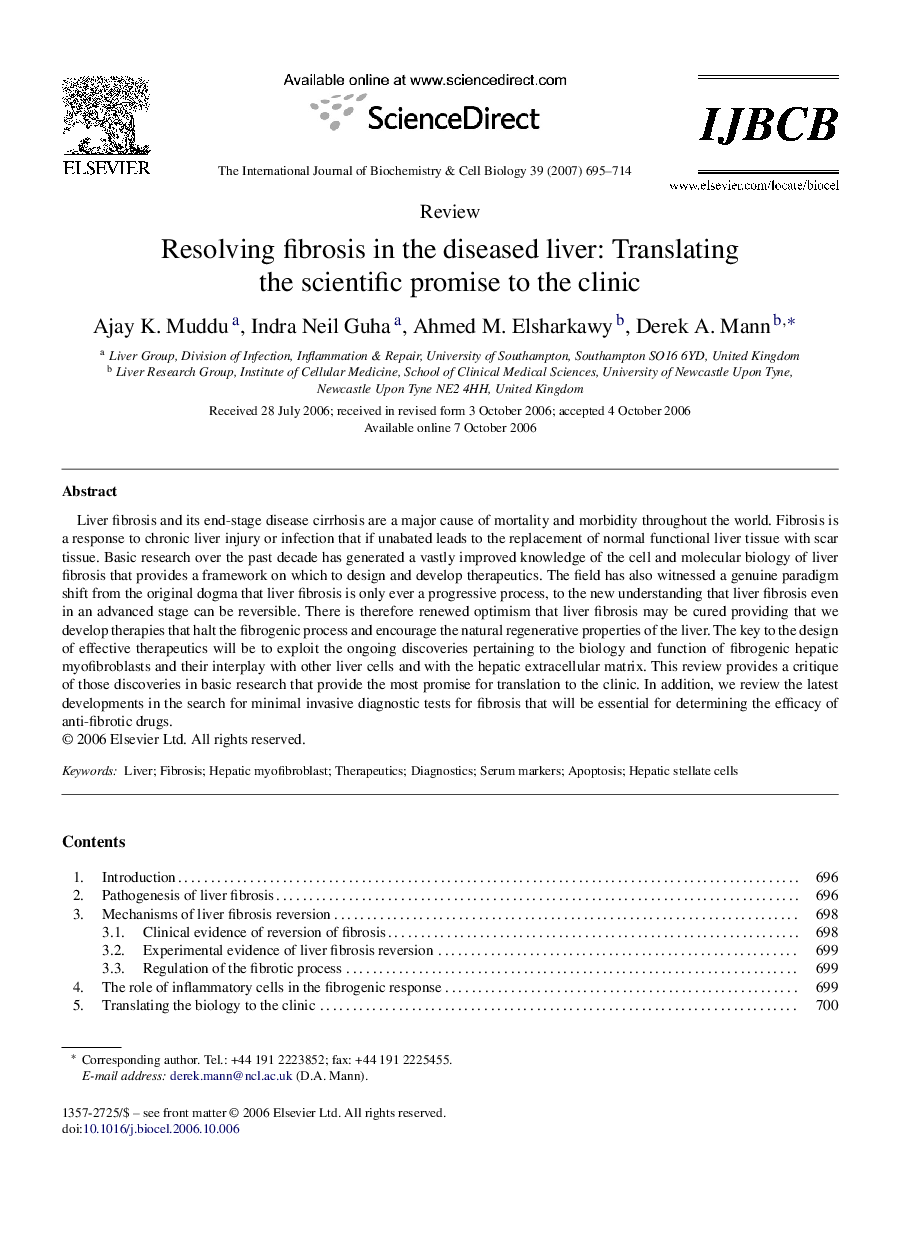| کد مقاله | کد نشریه | سال انتشار | مقاله انگلیسی | نسخه تمام متن |
|---|---|---|---|---|
| 8326424 | 1539976 | 2007 | 20 صفحه PDF | دانلود رایگان |
عنوان انگلیسی مقاله ISI
Resolving fibrosis in the diseased liver: Translating the scientific promise to the clinic
دانلود مقاله + سفارش ترجمه
دانلود مقاله ISI انگلیسی
رایگان برای ایرانیان
کلمات کلیدی
موضوعات مرتبط
علوم زیستی و بیوفناوری
بیوشیمی، ژنتیک و زیست شناسی مولکولی
زیست شیمی
پیش نمایش صفحه اول مقاله

چکیده انگلیسی
Liver fibrosis and its end-stage disease cirrhosis are a major cause of mortality and morbidity throughout the world. Fibrosis is a response to chronic liver injury or infection that if unabated leads to the replacement of normal functional liver tissue with scar tissue. Basic research over the past decade has generated a vastly improved knowledge of the cell and molecular biology of liver fibrosis that provides a framework on which to design and develop therapeutics. The field has also witnessed a genuine paradigm shift from the original dogma that liver fibrosis is only ever a progressive process, to the new understanding that liver fibrosis even in an advanced stage can be reversible. There is therefore renewed optimism that liver fibrosis may be cured providing that we develop therapies that halt the fibrogenic process and encourage the natural regenerative properties of the liver. The key to the design of effective therapeutics will be to exploit the ongoing discoveries pertaining to the biology and function of fibrogenic hepatic myofibroblasts and their interplay with other liver cells and with the hepatic extracellular matrix. This review provides a critique of those discoveries in basic research that provide the most promise for translation to the clinic. In addition, we review the latest developments in the search for minimal invasive diagnostic tests for fibrosis that will be essential for determining the efficacy of anti-fibrotic drugs.
ناشر
Database: Elsevier - ScienceDirect (ساینس دایرکت)
Journal: The International Journal of Biochemistry & Cell Biology - Volume 39, Issue 4, 2007, Pages 695-714
Journal: The International Journal of Biochemistry & Cell Biology - Volume 39, Issue 4, 2007, Pages 695-714
نویسندگان
Ajay K. Muddu, Indra Neil Guha, Ahmed M. Elsharkawy, Derek A. Mann,